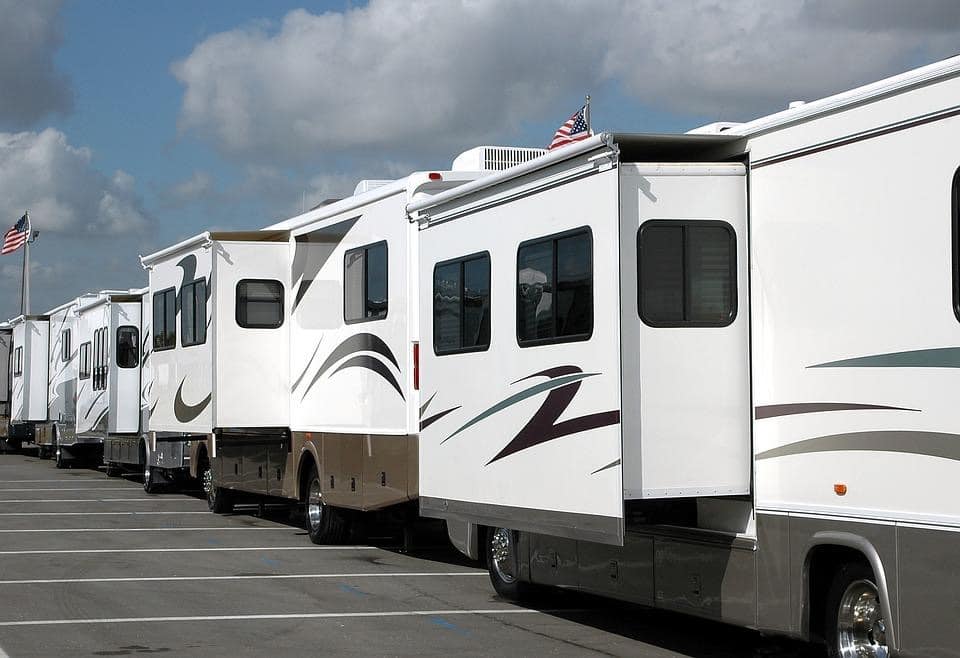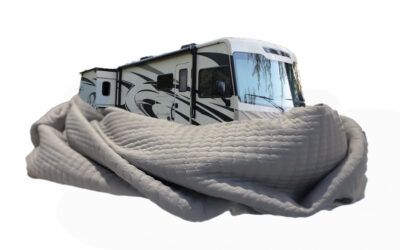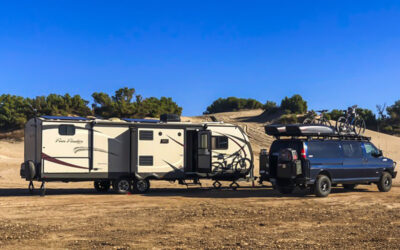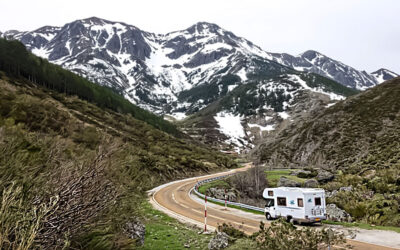There’s nothing quite like the freedom that comes with owning an RV trailer. Beautiful mountain vistas, mesmerizing oceans, and exciting adventures are easily at your disposal when you can haul your accommodations behind your vehicle. An RV trailer is defined as a trailer that is outfitted with living quarters and is hauled behind a tow vehicle using a hitch. This is in comparison to a motorhome, which does not need to be towed because the RV, itself, is drivable.
Types of RV Trailers
There are many different types of RV trailers to fit the needs of a wide variety of travelers:
even
- Pop-up trailers – These look similar to a box and are only a few feet tall when being towed. At the campsite, the owner raises the “lid” by turning a crank or pressing an automatic crank button. Then, beds slide out on either side. The slide-out beds and middle living area are protected from the elements by canvas walls and clear, vinyl, zippered windows. The central part of the pop-up camper might be big enough for a small kitchen, table, and bench seats.
- Truck campers – This kind of camper is the one exception to the “towed” part of the RV trailer definition. A truck camper doesn’t need to be towed because it sits in a truck bed and does not have wheels. Usually, the bed area extends over the cab of the truck.
- Hybrid trailers – This kind of trailer is a cross between a pop-up camper and a travel trailer. They mostly have rigid exterior walls in addition to slide-outs with canvas walls.
- Travel trailers – These are what most people think about when they hear “RV trailer.” They widely vary in size and often feature hard-wall slide-outs. Most of the time, they are big enough to have a full (albeit small) bathroom.
- Fifth-wheel trailers – Fifth-wheel trailers are larger than most travel trailers. Instead of connecting to a bumper hitch, they attach to a large hitch that must be installed in the bed of your truck. Some 5th wheels are suitable for winter living with RV Skirting.
- Sport-utility trailers – They come equipped with living space on the front end, as well as a garage and ramp on the back end. People who travel with motocross bikes, ATVs, or other sports-utility vehicles often use them because they can simply roll their “toys” into the back of the trailer and camp simultaneously.
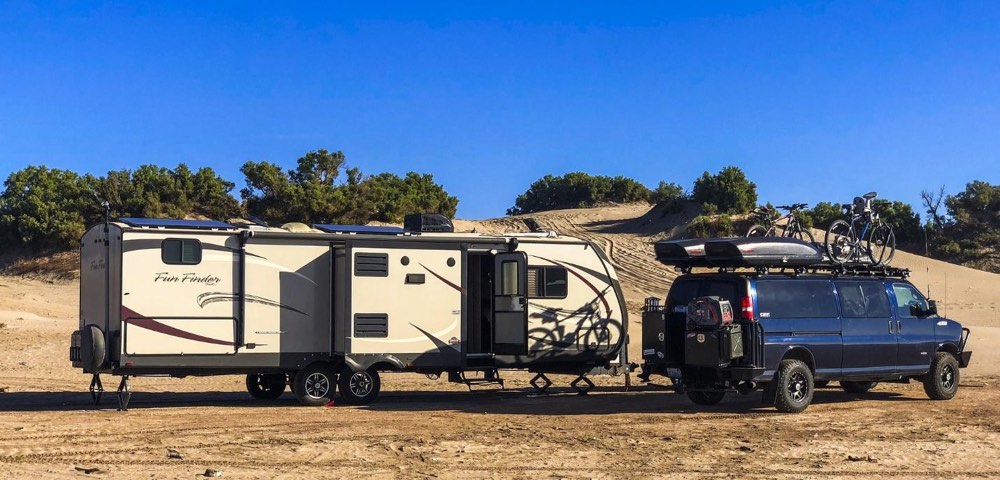
Image by Gavin Seim from Pixabay
Benefits of Owning an RV Trailer
It’s not hard to see the numerous benefits of having your own hotel-on-wheels. Traveling with an RV trailer gives you more control over your vacation. Headaches over canceled flights and questioning the cleanliness of highly-used hotel mattresses will be no more. Additionally, you can forgo expensive restaurants by making your own food in your RV kitchen.
RV Trailer vs. MotorHome
When comparing a motorhome to an RV trailer, there are many reasons why people often opt for the latter. It’s all about flexibility when you’re traveling. Will you want to leave the state park or KOA and explore after making yourself at home? In a motorhome situation, you would have to pack everything up and take your home with you while you adventure beyond the front gates.
On the other hand, if you own an RV trailer, all you would have to do is unhitch your truck or SUV, and bam! You would be free to drive wherever you want, leaving your accommodations at the campground. Backcountry dirt roads or tight parking lots wouldn’t be an issue for you.
Here’s one more factor to consider: most motorhomes are not equipped with crash-tested car seat hookups in the passenger area. Therefore, if you have young children, your truck or SUV would be a safer place for them to ride.
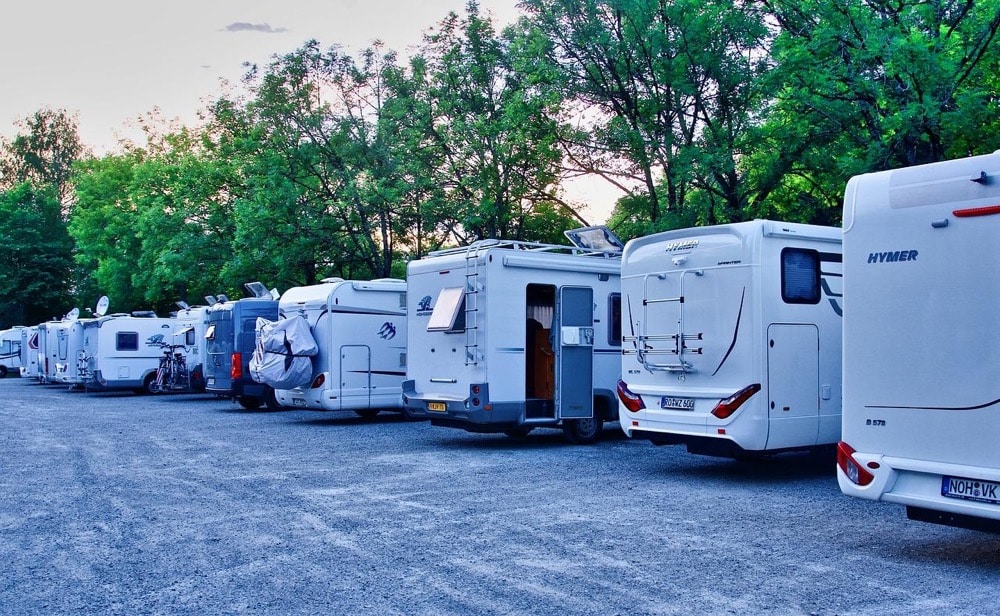
Image by Siggy Nowak from Pixabay
Which RV Trailer is Right for You?
When you’ve been wishing for too long and are finally ready to purchase your own RV trailer, it’s vital to consider the following factors.
What Size Do I Need?
Of course, you’ll need to think about the number of people who will be using the RV trailer regularly. But it’s more than just looking at the number of people that can sleep in any given trailer. Sure, you might be able to fit seven occupants into a 23-foot-long trailer, but you might like more elbow room than that would allow for your seven-person family.
What kind of storage space will you need in your RV trailer? This depends on how many days you plan on spending away from home. Consider how much food and clothes you plan to bring, and ensure your trailer comes with all the cabinets and shelves you will need.
When deciding what size you need, consider where you plan to take your RV trailer. Do you want to drive on narrow, steep roads and sleep in the middle of the Rocky Mountains? In that case, a smaller pop-up camper might be more suitable than a large-and-in-charge fifth-wheel trailer.
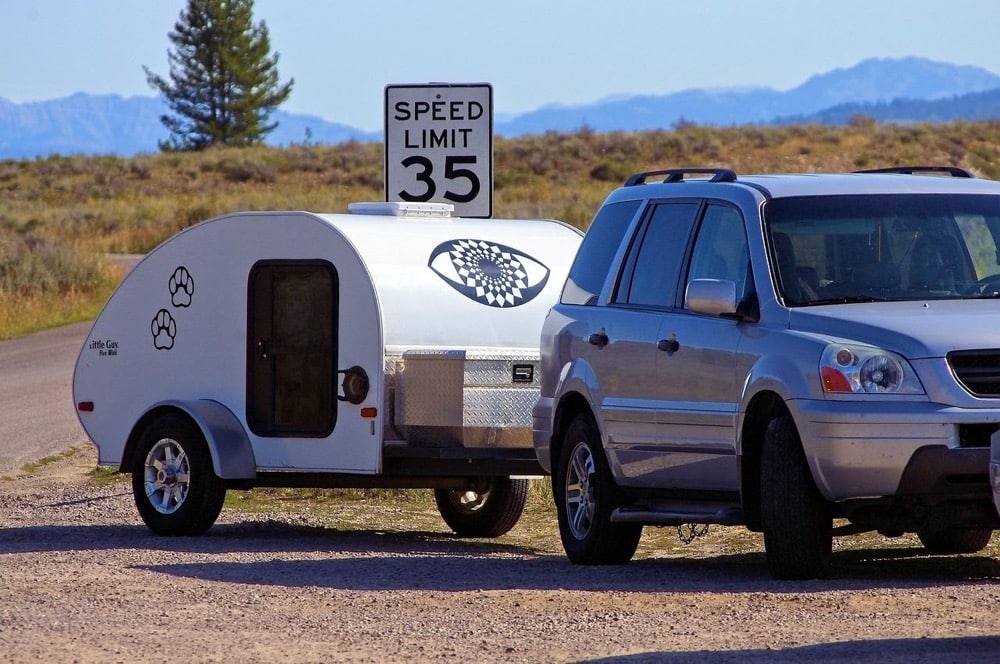
What is My Vehicle Capable of Towing?
Deciding on an RV trailer type and size will only be relevant if your truck or SUV is capable of towing it. Check your vehicle manufacturer’s specifications for your tow rating. You’ll add the weight of the trailer to the weight of passengers and cargo to come up with a total towing weight.
Everything that goes into your vehicle and trailer, including gas, water, suitcases, mountain bikes, etc., must be calculated into the total towing weight. And just to be safe, make sure your vehicle’s tow rating is well above what you calculate the total weight to be.
What Amenities Do I Need?
RV trailers can come with an endless number of add-ons and amenities, so what are your priorities? Do you need a bathtub for your toddler? Private sleeping quarters? A full kitchen? As you look at different brands and models, your “must-have” features might change.
For example, you might start by looking for a four-bed travel trailer for your four-person family, but come to find out that two of the beds need to be converted from the kitchen table and bench seats. Knowing this, you may consider upgrading to a six-person trailer with two bunk beds. Converting the table and sofa into beds every night during your vacation really cuts into family fun time, so it’s no wonder why you would change your mind. This is just one instance of how priorities can change when looking at different amenities.
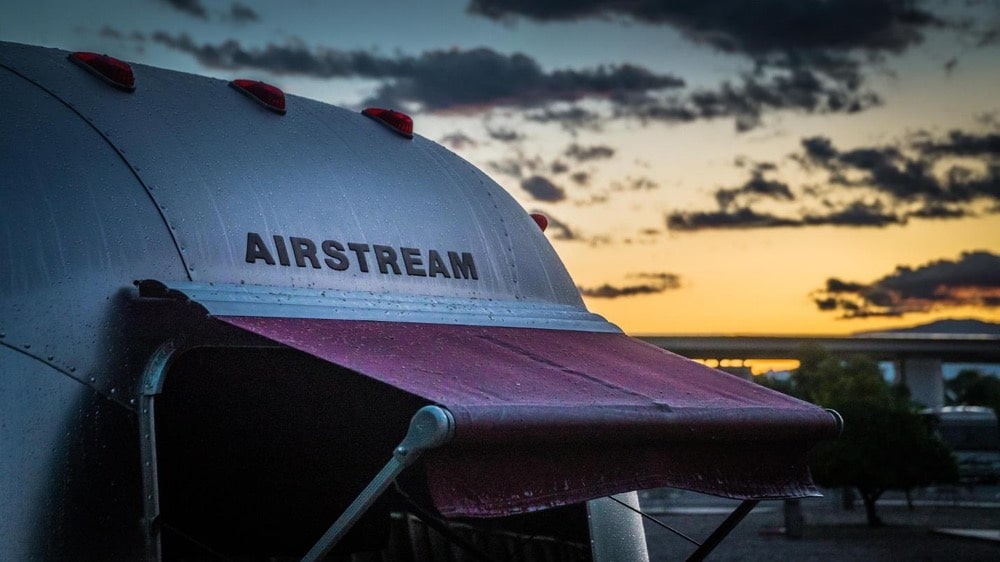
Image by Steve Adcock from Pixabay
How Much Can I Afford to Spend on an RV Trailer, and How Will I Pay for it?
The answer to this question might impact the number of amenities that can fit on your priority list. Consider how you’re going to pay for your new trailer. Are you going to pay cash or get an RV or personal loan? If you need to get a loan, how much can you afford to spend monthly to pay it back? Here are the differences between different types of RV loans and personal loans:
- RV loan from a bank – Almost any bank can provide you with an RV loan just like they would a car loan (but they are not the same). You might do this before visiting the RV dealer to determine your budget ahead of time. Your lender may or may not require your RV to be inspected before they will approve the loan, which could cost a couple of hundred dollars.
- RV loan from a dealer – After choosing your perfect RV trailer, the dealer will likely present you with many financing options. Sometimes, going through the dealer for RV financing can give you a certain amount of negotiating power on the asking price.
- Personal loan – A personal loan might be the right decision if you need to borrow less than $10,000. After obtaining a lump sum payment from the lender, you can show up at the dealership with cash in-hand.
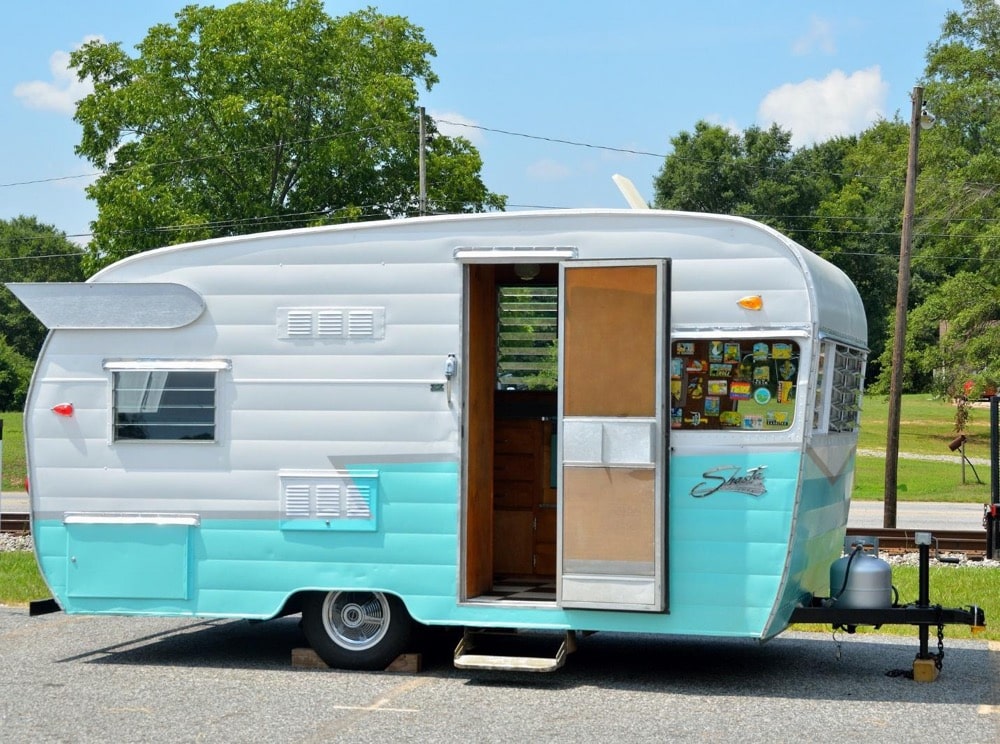
Image by Paul Brennan from Pixabay
How to Maintain Your RV Trailer
The best things in life require regular care and attention, and an RV trailer is no different. Proper maintenance will help your recreational investment to keep going strong after decades of use.
Regular Inspections and Tune-Ups
Depending on your state, you might be required to have your RV trailer inspected yearly, just like your regular vehicle. Most states require inspections for trailers that are over a specified weight.
Whether or not yearly inspections are required for you, you should regularly have an RV mechanic check your tires, brakes, and other mechanical components for any problems. You could avoid a major accident by doing so.
